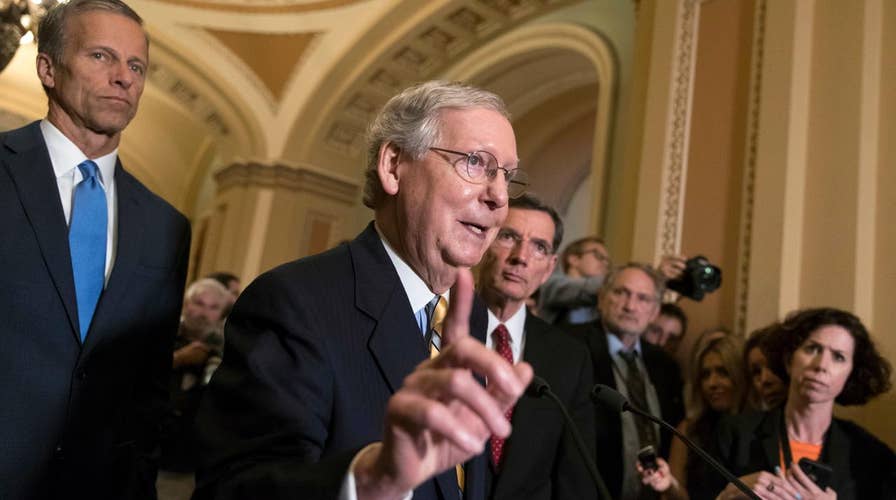Enough Senate support to repeal then replace ObamaCare?
Lawmakers seek solution to impasse over health care reform; insight from Sarah Westwood, White House correspondent for The Washington Examiner
The Senate’s machinations on the health insurance bill have led to significant movement in the past week. Republicans need a legislative win, the first substantive legislative win this year, so they can move on to fundamental tax reform, which has more agreement across all stripes of Republican lawmakers.
A week ago, President Donald Trump floated support for repealing ObamaCare first and working on reforms afterwards. Following the tweet, Sen. Ben Sasse, R-Nebraska, released an open letter to the president supporting his timeline, giving the Senate through the Independence Day weekend, and proposing the 2015 reconciliation bill as the vehicle for repeal, joining conservatives in the House and Senate who have been supporting the 2015 bill from the beginning of the year.
The 2015 reconciliation bill repealed most of ObamaCare, including tax and cost-sharing subsidies, Medicaid expansion, and almost all of the 2010 law’s taxes. It did not, however, repeal ObamaCare’s regulatory structure, which has driven up the cost of health insurance.
This bill has been a focus of conservatives committed to repealing ObamaCare for a couple major reasons: it has passed the constraints of reconciliation and almost every Republican in the House and Senate voted for its passage.
Why do conservatives always have to give up and accept failure? Well, not only failure, but a very big, very clearly broken pledge. Republicans have been promising repeal for the better part of a decade,
Ben Sasse and President Trump have come out on the right side of this. The Senate bill we have seen to this point is not a repeal of ObamaCare, and we have seen senators pressuring Republican lawmakers to accept it because “it’s time to put ideological differences aside and move,” as Sen. Pat Roberts, R-Kansas, said.
Why do conservatives always have to give up and accept failure? Well, not only failure, but a very big, very clearly broken pledge. Republicans have been promising repeal for the better part of a decade, and statements like Roberts’ prove that something more than the majorities in the House and Senate and a Republican in the White House is necessary to force their hand to keep their promises.
We need a strong repeal of ObamaCare to make it onto the floor, taking advantage of reconciliation that Republican senators voted for eighteen months ago. Being able to say, “Look! You voted for this; we want at least this level of ObamaCare repeal,” is important.
If the bill is brought up for a vote again, there will be intense pressure from our grassroots activists. We will do what we can to convince Republicans not to break their central campaign promise for seven years and a voting record they would be betraying to vote against the 2015 reconciliation bill.
Our grassroots activists understand the shocking hypocrisy of someone who would vote year after year for ObamaCare repeal followed by year after year promises to repeal ObamaCare under a Republican president – only to change their tune under President Trump. They will understand that these members were relying on President Obama to veto their efforts – some Republicans never really wanted to have their bills become law. They would be exposed as frauds.
They should pass the 2015 reconciliation bill. The bill repeals the risk corridors, reinsurance, and risk adjustment programs; premium tax credit; cost-sharing subsidies; small business tax credit; individual mandate; Medicaid expansion; Cadillac tax; tax on health savings accounts; medical device tax; health insurance tax; tanning tax; and the net investment tax.
This would repeal a vast amount of ObamaCare and be a big improvement over the second version of the Senate health insurance bill we saw before the Independence Day break. It would address the premium increases and start to free the insurance market.
When faced with squishy moderates who are only willing to vote to repeal ObamaCare when Obama is in the White House, we have to go back to their past votes and hold them to those votes.

